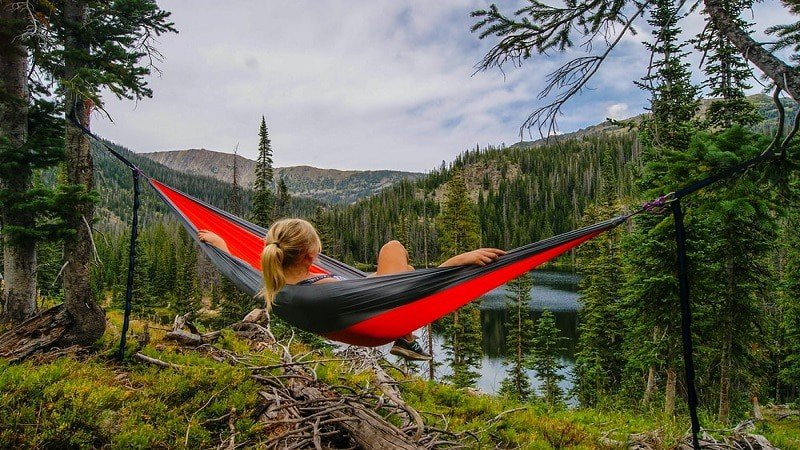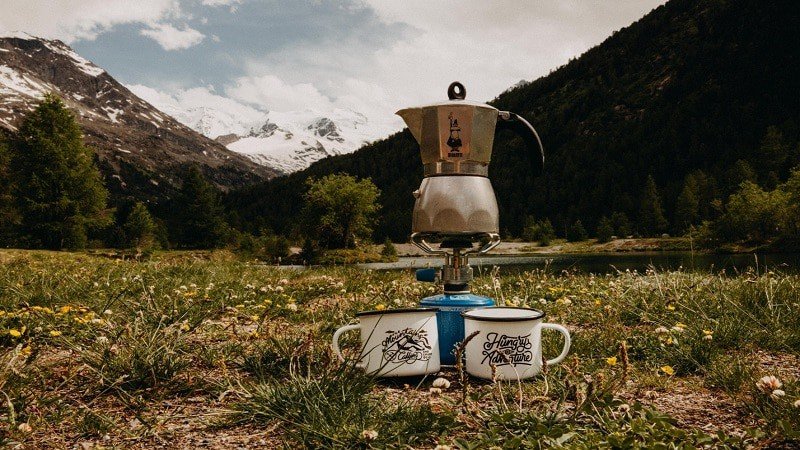If you’re a fan of wildlife and nature, camping is the best activity you can embark on. The rustic life in the woods tests your survival skills to the best while also giving you the best adventures of your life. Camping always makes for great stories as they’re full of unusual experiences that you otherwise won’t encounter in your everyday life.
One thing that proves to be a problem though, is to safely store your food on a camping trip. A camping trip can last up to three to five days easily (more if you’d like), and you would obviously need food to keep your energy levels for surviving and doing chores such as setting up tents in the woods.
How to Store Food While Camping
To successfully store food to eat throughout your camping trip, you’ll need different kinds of equipment that will aid you to safely secure and store your food. Here’s what you’ll need.
Small Food Containers
Coolers (for drinks)
Aluminum Foils
Plastic Bags
Cling Films
Method # 1 – Use Smell-Less Plastic Bags
Outstanding amongst other approaches to stay away from creatures getting into your food is to zero in on keeping the smell of the food at least. Regardless of whether it’s in your vehicle, a few wildlife animals might actually want to get the fragrance and follow it back to your concealing space. Vehicles might be harder for most creatures to get into, however, that doesn’t mean they will not attempt. Putting away your food in extraordinarily planned plastic packs, for example, those made by SmellyProof can assist with fending creatures off. These sacks are intended to keep the smell of the food in.
Therefore, close-by animals will have no clue whether there is any food in their proximity or not. More so, these sacks aren’t pricey. Indeed, even campers on a strict spending plan can get the advantages that the packs have to bring to the table. While you may trust your vehicle to keep a bear away, you should prioritize before anything else that more tiny animals can discover food that’s close by and follow you rather with ease.
Method # 2 – Use Bear-Safe Containers
If you will camp in bear country, putting away your food in a bear-safe holder is a good thought. Regardless of whether you’re anticipating keeping your food in the vehicle, it never damages to acquire that tad of additional security. Also, only one more apparatus can help in keeping the aroma of food caught. Something like a bear canister is helpful equipment with regards to getting bears far from your food. In case you’re new to what a bear canister is, it’s basically a hardcore container that bears can’t open. Regardless of whether they discover them, they normally can’t get inside of them.
While neither the actual canister nor your vehicle is efficient at keeping smells stored, joining them can make it a lot simpler to ward animals off. Also, different creatures will actually want to have the option to get into it by the same token. In numerous campsites that are situated in bear-substantial regions, you’ll likewise have the option to discover specific storage spaces for putting away food. Frequently, food must be put away in your vehicle during the day and should be secured in the storage spaces around evening time. This gets any aroma of food far from your camping area while you’re dozing, so the storage spaces are imperative to utilize!
Method # 3 – A Clean and Hygienic Campsite
While a vacant covering may not appear as though much to you, it’s certainly interesting to wildlife creatures that may smell the food that was in it. You may realize that covering is unfilled, however, there will in any case be awaiting smell that can draw in creatures to your site. Subsequently, it’s shrewd to be as cautious with your trash as you are with your food. On the off chance that the campsite offers trash bins that are away from your site, go ahead and utilize them. Else, you can likewise get a subsequent bear-verification compartment to keep trash in. Whatever might convey a fragrance is something you need to keep put away. This can even incorporate your cleanliness items, similar to cleansers, shampoos and the sky is the limit from there. In spite of the fact that you realize they aren’t food, a few creatures might in any case be drawn to the smell, particularly in case it’s a food-based one.
Method # 4 – Look Out for Campsite Rules
In case you’re not effectively acquainted with the guidelines for the camping area you’re wanting to visit, it’s a savvy decision to look at them. While you may expect there to be general security rules and rules in regards to flames and wild creatures, what you can be sure of is that a few campsites have rules in regards to your food. Relax! These aren’t strict regulations mentioning to you what can or can’t be brought. It’s improbable that a camping area will prevent you from bringing a ham sandwich if that’s one of the foods you want to bring. What these guidelines will advise you is the means by which to best store your food.
Method # 5 – Out of Sight Out of Mind
Your food should not only be locked away to keep animals away from the rich aroma, it should also be far away out of sight. A few creatures are equipped for perceiving seeing specific sorts of food sources. Thus, they might be inclined to attempt to get into your vehicle and devour a delicious meal. In any event, make a point to put a cover over the food holder. Else, you can likewise select to store it in your trunk. The last is an extraordinary choice, as it permits you to keep your entryways and windows shut firmly during the whole excursion.
Our Final Thoughts
When it comes to storing food on camping the trip, your number one priority should be to protect it from animals. Any place you plan on setting up camp, it will be critical to find out about what sorts of untamed life may exist nearby. In numerous camping areas, you might find that animals such as squirrels, raccoons, and deer exist. While these creatures might be keen on your food, they aren’t ordinarily viewed as risky. If anything, you can easily scare off these animals and successfully protect your food.











